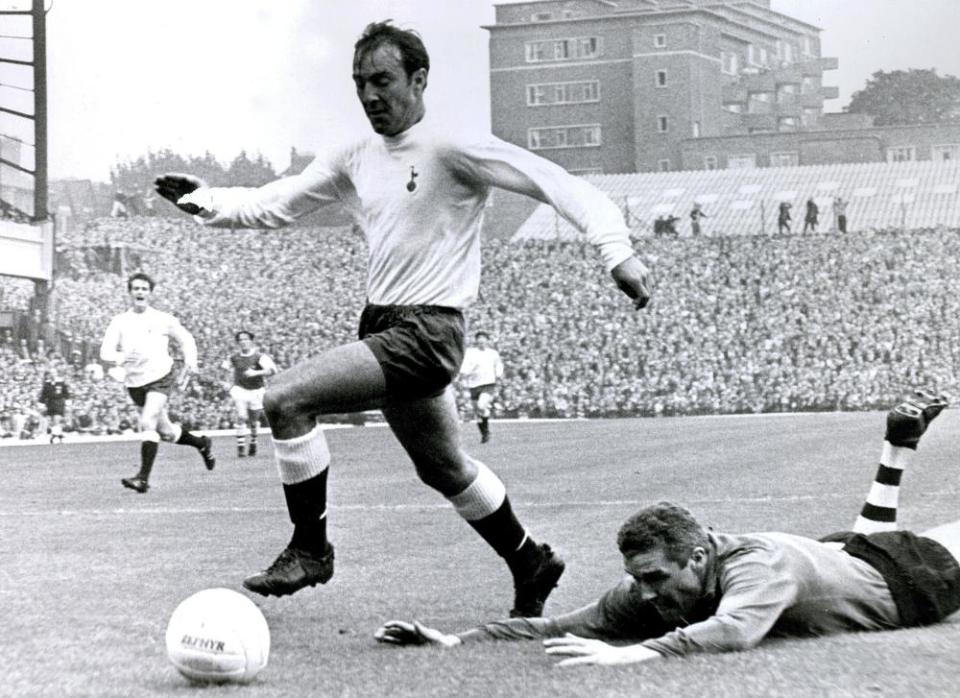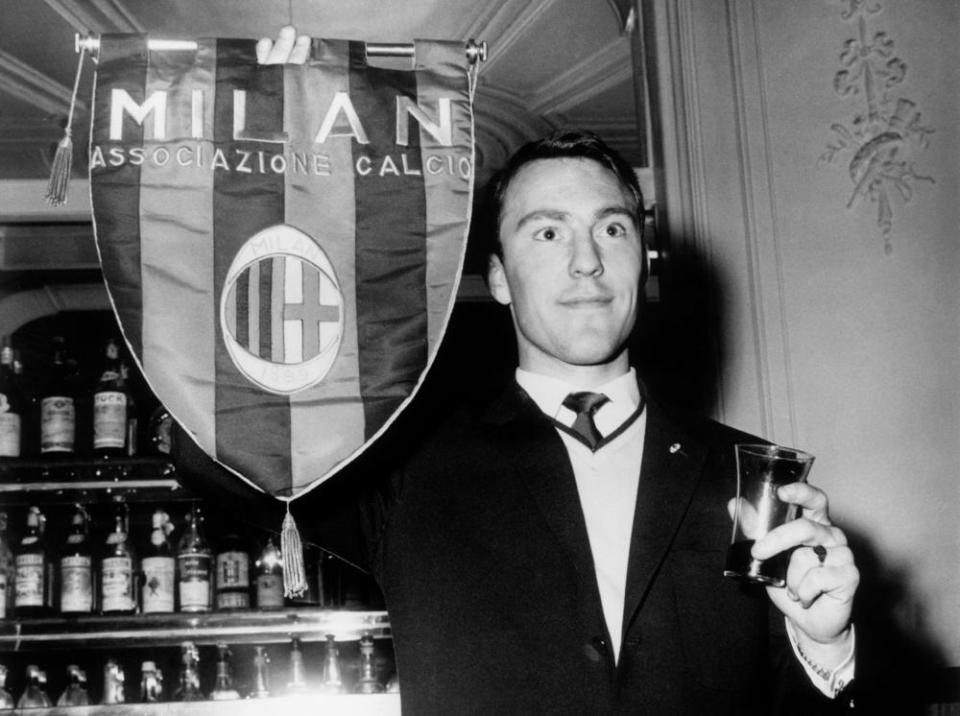Jimmy Greaves was a genius, the purest finisher England has produced
When Jimmy Greaves was playing against the team you supported, a sense of foreboding accompanied you through the turnstiles. The pleasurable anticipation of witnessing one of the greatest footballers of his era was severely undermined by the knowledge of the effect that this slender, neat-featured, dark-haired, quick-footed little man was likely to have on the course of the afternoon.
Like his great contemporary Denis Law, Greaves was a footballer who could appear to be entirely aloof from the proceedings until the moment, perhaps not long before the final whistle, when he flickered into life and settled the result with a single stroke of genius. The effect was at its most vivid on mid-winter Saturday afternoons during his time in the white shirt of Tottenham Hotspur, when he would sprint into the penalty area like a streak of light amid the gloom.
Related: Jimmy Greaves, former England striker and World Cup winner, dies aged 81
The purest finisher England has ever produced, Greaves functioned with deadly economy. Like nature’s great predators, there was nothing on his mind except the act of killing. The hunger it fed was a secondary consideration. In subsequent decades, Gerd Müller and Romário operated to similar effect – but both were rewarded with the honour so painfully denied to the Englishman: a World Cup winner’s medal awarded as the result of a starring role in a final.
It was Greaves’s habit to score his goals in a way that almost took the drama out of the event. The path of his scoring shot would be the shortest route from his foot to a part of the net beyond the goalkeeper’s reach. He used both feet with great precision and an ease that made the absence of such skill in other leading players seem ridiculous.
For a man of 5ft 8in, too, he scored a surprising number of goals with convincing headers. He could jump well enough, but those headed strikes were principally the product of an uncanny anticipation and an ability to find the space between defenders.
No one ever came up with a better phrase to describe Greaves’s dominant characteristic than the late football writer John Moynihan, after watching Tottenham Hotspur play Slovan Bratislava in the quarter-final of the old European Cup Winners’ Cup under the White Hart Lane floodlights on a spring night in 1963. Spurs won 6-0, 6-2 on aggregate, and Greaves scored with what Moynihan described as “devastating nonchalance”. The magnificently patrician Geoffrey Green of the Times came close, however, observing on another occasion that when Greaves slipped the ball into goal, “it was like someone closing the door of a Rolls-Royce”.

Born in east London, Greaves started out as a teenager with Chelsea in an era when players in the old First Division still took public transport to the ground and, in his case, stopped off for a lunch of pie, eels and mash with his teammate Peter Brabrook. During his four years at Stamford Bridge, where the manager’s pre-match team talk was restricted to a cheery “all the best”, he scored 124 goals in 157 matches. At the start of the 1958-59 season, aged 18, he scored five against Stan Cullis’s Wolverhampton Wanderers, who would go on to win the title. That day he made Billy Wright, England’s vastly experienced captain, suffer the sort of humiliation once inflicted by Ferenc Puskas.
Greaves was a natural. “It was a life I was born to,” he told his great friend Brian Moore during the course of a television interview later in life. “I didn’t know anything other than playing football.” That was behind his claim to derive greater pleasure from working as a television pundit, most successfully in a long-running partnership with Ian St John, his old Liverpool adversary. Hard as it might be for anyone else to understand, he found a special satisfaction in mastering a skill he never imagined he might require, and for which he had no advantage of inborn ability, apart from a convivial nature and a sparky wit. By that time, too, he was simply grateful for the chance to earn a decent living after falling on hard times at the end of his playing career.
As a Chelsea starlet he had been earning earning £17 a week plus £2 for a win and £1 for a draw, with £7 a week in the summer, and it was money – an offer of £7,000 a year plus a £15,000 bonus on signature – that took him from west London to Milan in 1961. In his last match for Chelsea he was given the captaincy and scored all four goals in a 4-3 win.
The voyage to Italy turned out to be an ill-fated adventure that came to a premature conclusion. He settled reasonably well on the pitch, scoring nine times in 14 appearances (enough to qualify for a Serie A medal) despite the unhelpful attitude of the manager, Nereo Rocco, who had come in when his predecessor, Giuseppe Viani, the man who had bought Greaves, suffered a heart attack before the start of the season. But, like Law and Joe Baker at Torino, he had not come to terms with the demands of a footballer’s life in Italy. He was, he said, “A young man doing the wrong things at the wrong time.”

Returning to London after only a few months when Spurs paid Milan a pound short of £100,000, he resumed his feats for club and country. At Wembley in 1960 he had scored a goal against Spain with a flick of a boot worthy of the great Alfredo Di Stéfano, who was captaining the visitors. There was a hat-trick in England’s 9-3 victory over Scotland in 1961, with a side that he considered superior, in pure footballing terms, to Alf Ramsey’s World Cup winners.
But he would, wouldn’t he? Ramsey’s decision, after Greaves had recovered from injury, not to restore a man who had scored 44 goals in 57 international appearances to the team that became world champions in 1966 struck the cruellest of blows, exposing a vulnerability hitherto invisible to the outside world. It was the start of his slide into severe alcoholism, although not before he had completed a nine-year spell at White Hart Lane that brought FA Cup and Cup Winners’ Cup medals and 220 goals in 321 league appearances in partnership first with the powerful Bobby Smith and then with the subtle Alan Gilzean, and a subsequent season that produced 13 goals in the colours of West Ham.
He spent that season at Upton Park alongside Geoff Hurst, the man who had taken his place on 30 July 1966, the day his troubles began. If he leaves a more impressive legacy than the memory of the way he took his goals throughout his career, it is in the example of his subsequent climb out of the abyss.

 Yahoo Finance
Yahoo Finance 